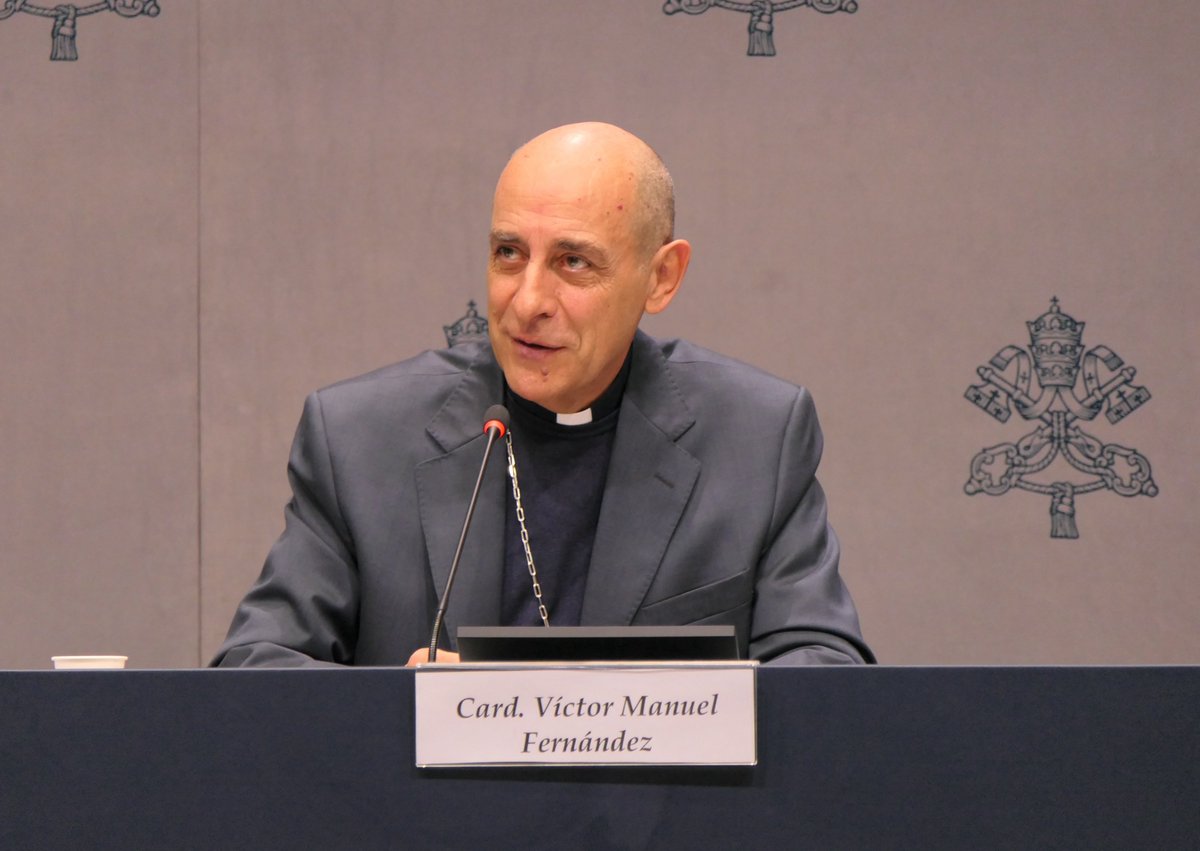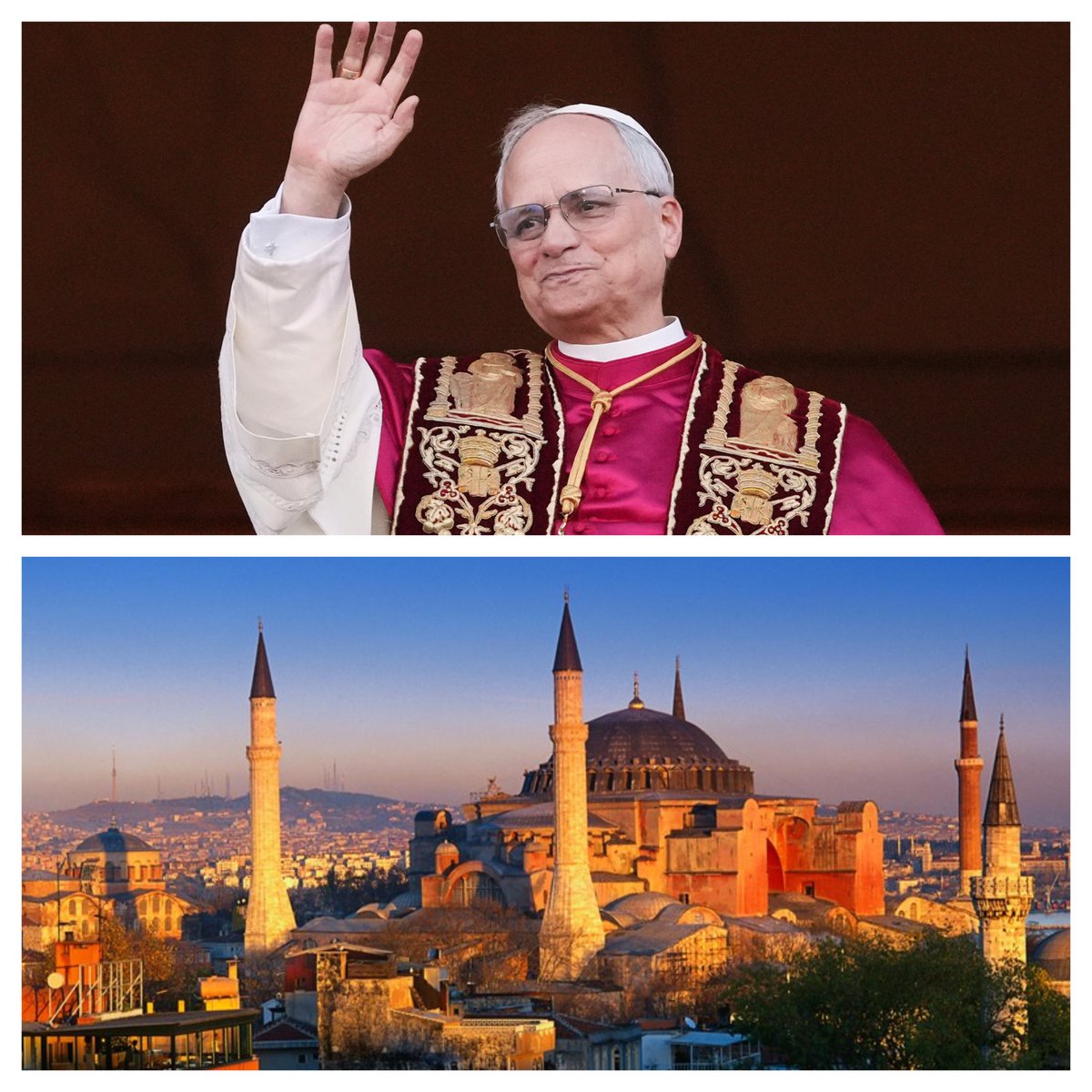“This saying is hard, who can accept it?” (Jn 6:60)
Francis “Explains” Bread of Life Discourse in John 6 — without mentioning the Real Presence!

From the man who likes to emphasize that we must “preach the Gospel always”, comes yet another blatant refusal to do precisely that. In a short “catechesis” on our Lord Jesus Christ’s “I am the Bread of Life” discourse in John 6:27-70, “Pope” Francis (Jorge Bergoglio) in his Sunday Angelus Address of Aug. 23, 2015 managed to preach on the classic scriptural prooftext for the Catholic dogma of Transubstantiation while conspicuously avoiding any reference to the Real Presence of Christ in the Holy Eucharist. Yet that is the very central theme of the entire discourse, as the Catholic Church teaches and as even Novus Ordo apologists constantly emphasize (e.g., Jimmy Akin, Patrick Madrid, Karl Keating, Tim Haines, Michael Voris, etc.).
Francis’ manifest refusal to even mention the dogma of Transubstantiation or the Holy Eucharist as part of a catechesis on this pericope, is an implicit denial of it, because he has an obligation when preaching on Christ’s words “I am the Bread of Life”, etc., to explain their meaning and not disguise it. But not only does Francis blatantly refrain from mentioning the Real Presence when he is obliged to teach it, he undermines it further by suggesting that our Lord’s words mean something else, something quite “unoffensive” to Protestant ears.
Listen to these clever words of the Argentinian antipope:
Today is the conclusion of the readings from the sixth chapter of the Gospel of St John, with the discourse on the “Bread of Life,” proclaimed by Jesus on the day after the miracle of the multiplication of the loaves and fishes. At the end of that discourse, the great enthusiasm of the day before faded, because Jesus had said He was the Bread come down from heaven, and that He would give His Flesh as food and His Blood as drink, clearly alluding to the sacrifice of His very life. These words provoked disappointment in the people, who considered them unworthy of the Messiah, not “winning.” That’s how some saw Jesus: as a Messiah who ought to speak and act in such a way that His mission would be successful, immediately! But they erred precisely in this: in manner of understanding the mission of the Messiah! Even the disciples failed to accept that language, that disturbing language of the Master. And today’s passage refers to their discomfort: “This saying is hard,” they said, “Who can accept it?” (John 6:60).
(“Pope” Francis, Angelus Address, August 23, 2015; underlining added.)
This is a complete distortion of the scriptural text. By speaking of “His Flesh as food and His Blood as drink”, our Lord was not simply speaking metaphorically about the Sacrifice He was going to offer on the Cross, which is exactly what Protestants and other heretics believe. Rather, Christ was speaking quite literally, foretelling His Real Presence in the Holy Eucharist, His True Body and Blood, under the appearances of bread and wine. It is this meaning that the people listening to our Lord found offensive, and this did not provoke “disappointment” in them but bewilderment! That is why they said, “This saying is hard, who can accept it?” (Jn 6:60). Francis apparently can’t, and so he has clearly joined their ranks.
The Modernist “Pope” continues slyly:
All that we have in the world does not satisfy our hunger for the infinite. We need Jesus, to remain with Him, to nourish ourselves at His table, on His words of eternal life! To believe in Jesus means making Him the centre, the meaning of our life. Christ is not an accessory element: He is the “living bread,” the indispensable nourishment. Attaching ourselves to Him, in a true relationship of faith and love, does not mean being chained, but [rather] profoundly free, always on a journey.
Each one of us can ask himself, right now, “Who is Jesus for me? Is He a name? an idea? Is He simply a person from history? Or is He really the person Who loves me, Who gave His life for me and walks with me?” Who is Jesus for you? Do you remain with Jesus? Do you seek to know Him in His word? Do you read the Gospel every day, a passage from the Gospel in order to know Jesus? Do you carry the little Gospel in your pocket, in your bag, in order to read it everywhere. Because the more we are with Him the more the desire to remain with Him grows. Now I kindly ask you, let us take a moment of silence, and each one of us, in silence, in his or her heart, ask yourself the question: “Who is Jesus for me?” In silence, everyone answer in his or her heart. “Who is Jesus for me?”
(“Pope” Francis, Angelus Address, August 23, 2015; underlining added.)
Martin Luther, John Calvin, or John Wesley could not have said it better. There is nothing in this explanation that in any way even hints at the Real Presence of Christ in the Eucharist, which is a dogma of the Faith, and pertinacious denial of which leads to eternal damnation:
CANON I.-If any one denieth, that, in the sacrament of the most holy Eucharist, are contained truly, really, and substantially, the body and blood together with the soul and divinity of our Lord Jesus Christ, and consequently the whole Christ; but saith that He is only therein as in a sign, or in figure, or virtue; let him be anathema.
CANON II.-If any one saith, that, in the sacred and holy sacrament of the Eucharist, the substance of the bread and wine remains conjointly with the body and blood of our Lord Jesus Christ, and denieth that wonderful and singular conversion of the whole substance of the bread into the Body, and of the whole substance of the wine into the Blood-the species Only of the bread and wine remaining-which conversion indeed the Catholic Church most aptly calls Transubstantiation; let him be anathema.
(Pope Julius III, Council of Trent, Session 13, Canons 1 & 2)
Everything in Francis’ words points to the nourishment Christ provides not as being His literal Body and Blood, even though it is precisely this literal Body and Blood that our Lord speaks about as being “my flesh” He will “give … for the life of the world” (Jn 6:52). Instead, Francis suggests the nourishment our Lord provides is merely His teaching, “His Word”. No Protestant could object to that — and no Catholic will recognize in Francis’ words here the Real Presence being taught.
Will the Novus Ordo enterprise known as Catholic Answers once again roll out Jimmy Akin to “explain” how Francis really is teaching Transubstantiation even though he clearly isn’t?
For a sobering reality check, we call to mind Pope Pius VI’s stern warning that it wouldn’t even be sufficient to simply teach the dogma of Transubstantiation while at the same time refusing to use the term “Transubstantiation”, as was done at the robber synod of Pistoia in the late eighteenth century:
The doctrine of the [heretical] synod [of Pistoia], in that part in which, undertaking to explain the doctrine of faith in the rite of consecration, and disregarding the scholastic questions about the manner in which Christ is in the Eucharist, from which questions it exhorts priests performing the duty of teaching to refrain, it states the doctrine in these two propositions only: 1) after the consecration Christ is truly, really, substantially under the species; 2) then the whole substance of the bread and wine ceases, appearances only remaining; it (the doctrine) absolutely omits to make any mention of transubstantiation, or conversion of the whole substance of the bread into the body, and of the whole substance of the wine into the blood, which the Council of Trent defined as an article of faith [see Denz. 877, 884], and which is contained in the solemn profession of faith [see Denz. 997]; since by an indiscreet and suspicious omission of this sort knowledge is taken away both of an article pertaining to faith, and also of the word consecrated by the Church to protect the profession of it, as if it were a discussion of a merely scholastic question,—dangerous, derogatory to the exposition of Catholic truth about the dogma of transubstantiation, favorable to heretics.
(Pope Pius VI, Bull Auctorem Fidei [1794], n. 29; Denz. 1529; underlining added.)
So this is what Pius VI had to say to those who stated the dogma of Transubstantiation in a way that contained no error but refused to use the term “Transubstantiation” — can you imagine what the same Pope would have said to a heretic like Bergoglio, who will not even state the dogma in a “catechesis” on the Bread of Life discourse in John 6?!
Let no one say now that Bergoglio has affirmed Transubstantiation elsewhere — this is the same old trick that was used by the proto-Modernists of the synod of Pistoia, whom the same Pope Pius VI castigated for their clever use of ambiguous language and deliberate contradictions in order to poison the pure Faith of the people more successfully:
[This] cannot be excused in the way that one sees it being done, under the erroneous pretext that the seemingly shocking affirmations in one place are further developed along orthodox lines in other places, and even in yet other places corrected; as if allowing for the possibility of either affirming or denying the statement, or of leaving it up to the personal inclinations of the individual – such has always been the fraudulent and daring method used by innovators to establish error. It allows for both the possibility of promoting error and of excusing it.
(Pope Pius VI, Bull Auctorem Fidei [1794]; underlining added.)
Besides, actions always speak louder than words, of course, and when you then see Mr. Bergoglio handing out “Holy Communion” like it’s popcorn (click here for video), together with his refusal to genuflect after the “consecration” at the Novus Ordo worship service, that’s really all you need to know.
“By their fruits you shall know them”, said our Blessed Lord (Mt 7:16); and remember, too, that Pope St. Pius X taught that Modernists can be identified not only by their ideas but also by how they speak and what they do: “Although they express their astonishment that We should number them amongst the enemies of the Church, no one will be reasonably surprised that We should do so, if, leaving out of account the internal disposition of the soul, of which God alone is the Judge, he considers their tenets, their manner of speech, and their action” (Pius X, Encyclical Pascendi, n. 3; italics added).
Well done, Francis. You have once again undermined the little bit of faith that may still be left in some of your adherents. But now it’s time to talk some more about “preaching the Gospel always” and to kiss another baby. The show must go on.
Image source: shutterstock.com
License: paid





No Comments
Be the first to start a conversation